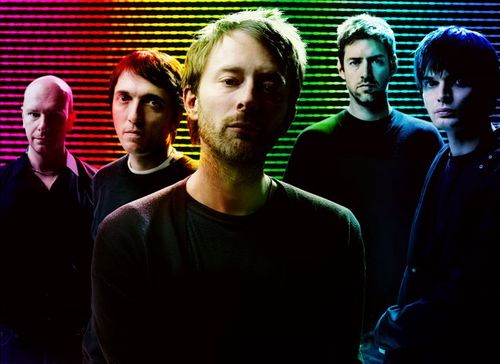What makes a band timeless? I was posed this question recently, and to be honest, I was unsure of how to respond. The reason being was that I don’t exactly know why a band becomes timeless in the first place. But I couldn’t admit this as a pop culture writer, so I came up with an answer that I agree with, but don’t necessarily fully accept.
Here is the basis of the discussion: In my friends’ estimation, there is no band from the recent era that can be considered timeless or unforgettable. Music acts like The Beatles, The Rolling Stones, Led Zeppelin, Pink Floyd, and Black Sabbath are all considered timeless, influential, and legendary. Is there such a thing in the modern age?
My answer to this statement came down to one specific trait: Originality of the band. Back then, no one had ever heard anything like The Beatles or Zeppelin. They were building a foundation (a new set of rules) in which all other music would be compared to. Whereas bands existing within movements like Grunge and Britpop in the 90s (like Nirvana and Oasis) were a combination of preconceived genres of music. Society had witnessed music like this before, just in different forms.
Now granted, I understand that rock n’ roll would not exist without The Blues. So, in a sense, the rock n’ roll bands of the 60s and 70s were infusing blues with heavy guitar riffs and the sweet swagger of sensual lyricism.
But rock n’ roll became a defined idea as a result of this influential era of music. So, if a modern day band attempts to do something different, it becomes very difficult to divert far from the blueprint that was the classic era of rock.
Thus a band being timeless in this day and age is, perhaps, an insurmountable task. To break away from the original model and to create something truly innovative is a feat that is perhaps impossible. Bands from all eras will forever be memorable to a certain group of people (eg. music from the 90s will always hold a special place in my heart because it existed during my transition from adolescent to adult. It became the soundtrack to my life). But bands we loved growing up and bands that are timeless are two completely conflicting ideas.
Are bands like Nickelback or The Killers timeless? Will they ever be? It’s pretty difficult to answer that question now, but I honestly don’t think they are (Popularity does not always guarantee immortality).
In the internet age of music, bands have become prominent more for their singles than their albums. For the majority of present-day music buyers, downloading has become the norm. This, in turn, has led to an increase in sporadic, isolated song purchases rather than the purchasing of an entire album. Instead of having hit records, the band is relegated to hit singles (digital in form). The band becomes known by those songs and those songs alone.
In this case, the sum of the parts does not equal a whole.
You also need to tie in the corporate side of things. With music sales at an all time low, record labels need to do all they can to make a pretty penny. As a result, they tend to exploit a sure thing. A singer like Britney Spears* is not timeless, but rather a commodity that is packaged and sold to music listeners. She was extremely popular for a time (and still is but not to the same degree), and thus many acts arose in an attempt to cash in on her success. Remember when Christina Aguilera, Jessica Simpson, and Jennifer Lopez all blew onto the scene? It was exploiting what was successful.
Though record labels have always been guilty of this procedure, it is more prevalent than ever in the digital age. And, as a result, when a label is solely concerned about finances, originality becomes a lost cause.
So have there been timeless bands over the past 20 to 30 years? Depeche Mode? Nirvana? Pearl Jam? Oasis? I can think of perhaps one-Radiohead. And the reason is because they are doing something unique and imaginative. However, on occasion, I have referred to them as the modern day Pink Floyd.
So it all comes back to originality, which in all honesty, is probably not the only answer. If there is an answer at all.
*Though I hate to use pop music as an example, I still think it works in this situation as she seems to be the most talked about “musician” of the past 20 years. But her “timelessness” is very difficult to assess. Is she truly influential towards other musical acts, or merely a product exploited for the purpose of economics?


